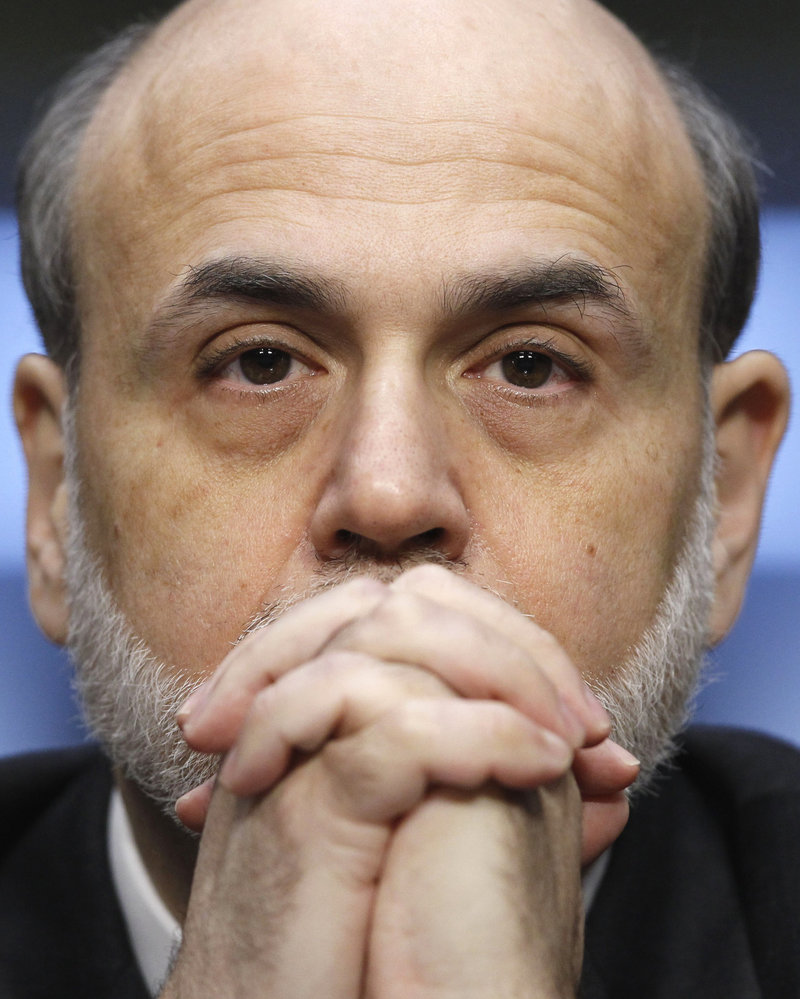WASHINGTON — The Federal Reserve is increasingly confident in the economy and about to end a $600 billion program to support it. Now for the next step – figuring out how to keep inflation from taking off.
Since late last year, the Fed has bought government bonds to keep interest rates low. Fed Chairman Ben Bernanke and his colleagues are expected to signal this week that they will allow the program to expire as scheduled in June.
The end of the bond-buying program would mean that, aside from tax cuts, almost all of the extraordinary measures that the government took to prop up the economy are over. Congress is fighting over how deeply to cut federal spending, not whether to spend more for stimulus.
Since the Fed announced the plan last August, worries that the economy would fall back into recession have all but disappeared. The private sector is adding jobs, and the stock market is at its highest point since the summer of 2008.
But higher oil and food prices pose a threat. If companies are forced to raise prices quickly to make up for escalating costs, that could start a spiral of inflation. Exactly how much of a threat inflation poses to the economy right now is a matter of disagreement within the central bank.
A vocal minority, including the Fed regional chiefs in Philadelphia and Minneapolis, believe the Fed may need to raise interest rates by the end of this year to fight inflation. The Fed has kept its benchmark interest rate near zero since December 2008.
The majority – including Bernanke, vice chairwoman Janet Yellen and William Dudley, president of the Federal Reserve Bank of New York – believe interest rates should stay low longer, and the bond-buying program should run its course.
Bernanke has predicted that the jump in oil and food prices will cause only a brief, modest increase in consumer inflation. Excluding those prices, which tend to fluctuate sharply, inflation is still low, he has argued.
Bill Gross, who manages the world’s largest mutual fund at Pimco, worries that rates on Treasury bonds will rise when the Fed stops buying them. If other buyers don’t step in and there’s less demand for Treasury bonds, then the rates, or yields, on those bonds would rise.
That would drive down prices on bonds. Rates on mortgages, corporate debt and other loans pegged to the Treasury securities would rise, too. Higher borrowing costs could slow spending by people and businesses, and slow the overall economy.
Fed officials and others believe that because the end of the program has been well telegraphed, it won’t have much of an impact on bond rates. That was the case in 2010 when the Fed ended a $1.7 trillion stimulus program.
The Fed meeting begins today. When it ends Wednesday, Bernanke, who wants to make the Fed more of an open institution, will take an unprecedented step for a Fed chief and hold a press conference.
The press conference gives Bernanke the chance to build support for the Fed. But it could also backfire if what he says causes confusion and rattles Wall Street.
Bernanke plans to conduct the press conference once a quarter to unveil the Fed’s updated economic forecasts.
Send questions/comments to the editors.



Success. Please wait for the page to reload. If the page does not reload within 5 seconds, please refresh the page.
Enter your email and password to access comments.
Hi, to comment on stories you must . This profile is in addition to your subscription and website login.
Already have a commenting profile? .
Invalid username/password.
Please check your email to confirm and complete your registration.
Only subscribers are eligible to post comments. Please subscribe or login first for digital access. Here’s why.
Use the form below to reset your password. When you've submitted your account email, we will send an email with a reset code.